Zooplankton are tiny animals that float in water. They're important for keeping fish healthy and well-fed. Let's explore 10 types of zooplankton that can boost the nutrition of marine fish.
| Key Takeaways |
|---|
| - Zooplankton are essential for fish health and nutrition - Different species offer unique benefits to aquarium ecosystems - A diverse zooplankton diet leads to healthier, more active fish - Some zooplankton help clean tanks and maintain water quality - Proper zooplankton selection can support coral health |
1. Tisbe biminensis: The All-Around Helper
Tisbe biminensis is a type of copepod that's great for fish tanks. These little guys are like the Swiss Army knives of the zooplankton world. They can live in different water conditions and help keep your tank clean.
Imagine tiny underwater janitors that also serve as yummy snacks for your fish. That's Tisbe for you! They're perfect for starting a new tank because they multiply quickly and don't need much care. Tisbe biminensis also plays a crucial role in nutrient cycling, helping to break down organic matter and prevent the buildup of harmful substances in your aquarium.
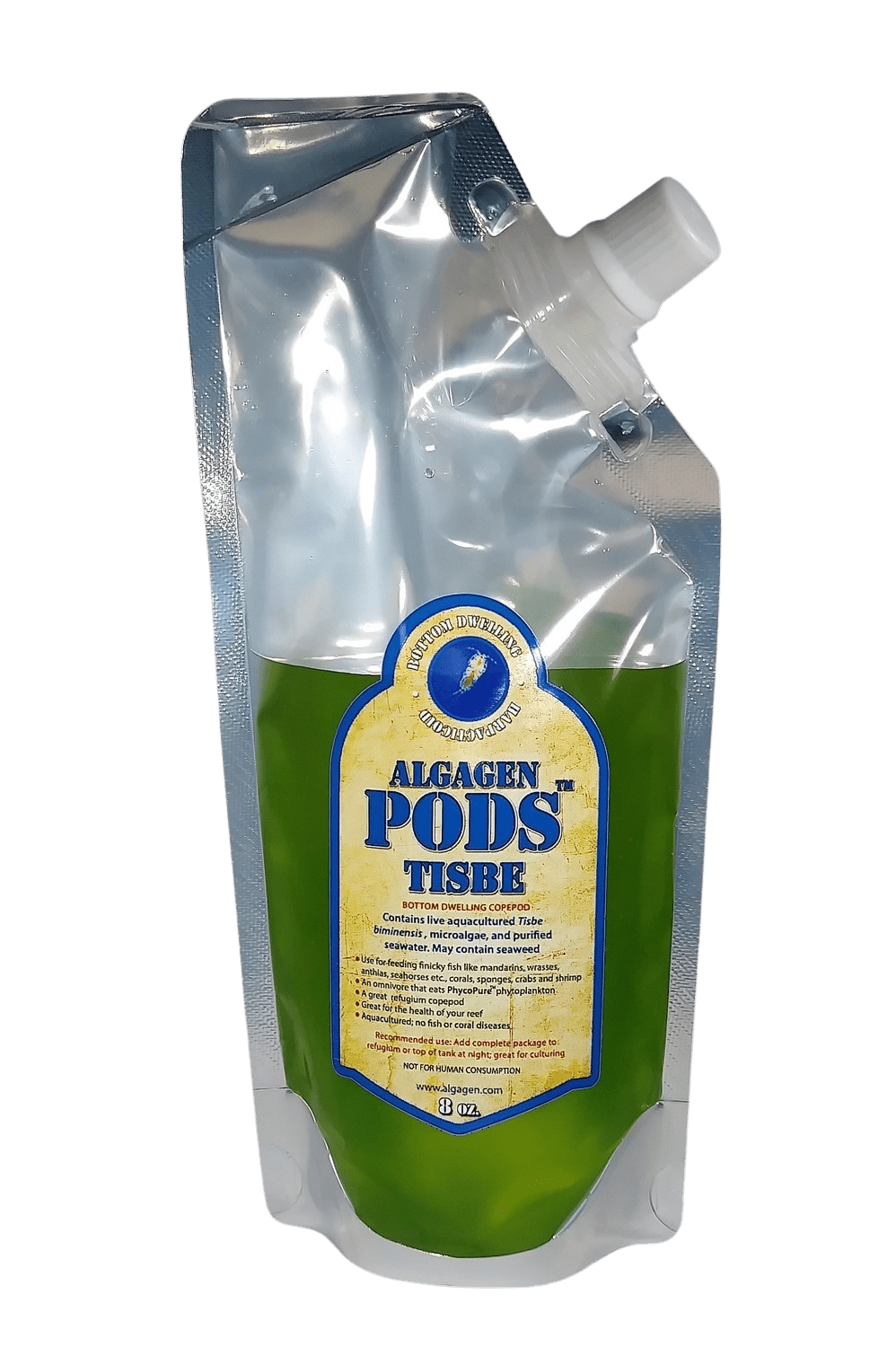

You can get Tisbe from AlgaGen's AlgagenPods Tisbe. They're easy to add to your tank and will help keep your fish happy and healthy. These copepods are particularly beneficial for reef tanks, as they can survive in a wide range of salinities and temperatures.
2. Apocyclops: The Cleanup Crew
Apocyclops are like the vacuum cleaners of the fish tank world. These little copepods love to munch on leftover food and other yucky stuff in your tank. By doing this, they help keep the water clean and provide a tasty snack for your fish.
Think of Apocyclops as tiny underwater recyclers. They take the stuff that might make your tank dirty and turn it into food for your fish. It's like having a cleaning service that also cooks dinner! Apocyclops are especially valuable in marine aquariums because they can help control algae growth and maintain water clarity.

You can get Apocyclops from AlgaGen's Apocyclops collection. They're offering a special deal where you can buy two and get one free! This is an excellent opportunity to establish a thriving Apocyclops population in your aquarium.
3. Rotifers: Tiny but Mighty
Rotifers might be small, but they pack a big punch when it comes to feeding fish. These little zooplankton are like the perfect baby food for young fish. They're so small that even the tiniest fish can eat them easily.
Imagine rotifers as the fish world's version of mashed vegetables for babies. They're easy to digest and full of good stuff that helps fish grow. Fish farmers love using rotifers to raise healthy baby fish. Rotifers are particularly rich in essential fatty acids, which are crucial for the development of young fish's nervous systems and overall growth.
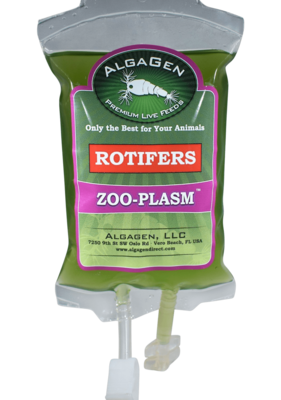
You can find rotifers in AlgaGen's rotifer collection. They're easy to use and great for keeping your fish well-fed. Rotifers are an excellent choice for aquarists breeding delicate marine species or raising ornamental fish larvae.
4. Decapod Larvae: Crab Babies for Fish Food
Decapod larvae are baby crabs and shrimps. They're like little protein shakes for fish. These larvae are packed with nutrients that help fish grow strong and healthy.
Think of decapod larvae as power bars for fish. They're full of energy and help fish grow big and strong. Fish love to eat these tasty morsels, and they're especially good for picky eaters. Decapod larvae are rich in chitin, which can help improve fish digestion and boost their immune systems.
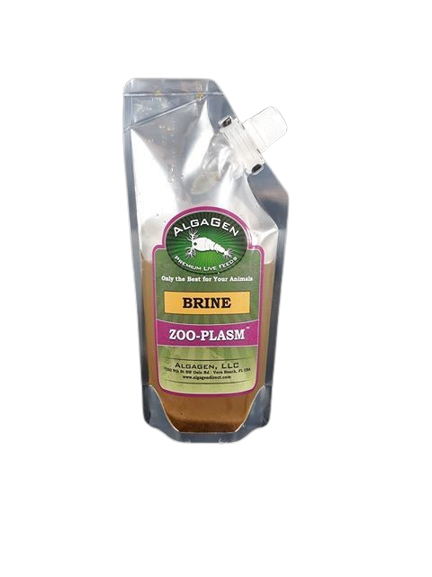
AlgaGen offers Zoo-Plasm™ Decapod Brine, which is a great way to feed your fish these nutritious larvae. This product is particularly beneficial for marine fish species that naturally prey on small crustaceans in the wild.
5. Copepod Blends: The Mixed Salad of the Sea
Copepod blends are like a mixed salad for fish. They contain different types of copepods, which means fish get a variety of nutrients. This is great for keeping fish healthy and happy.
Imagine giving your fish a buffet of different foods. That's what copepod blends do. They provide a range of flavors and nutrients, which is especially good for tanks with many types of fish. Copepod blends often include species with different swimming behaviors, ensuring that fish at all levels of the aquarium have access to nutritious food.
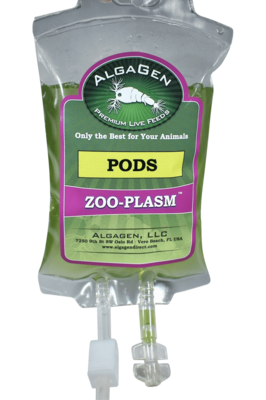
AlgaGen's Zoo-Plasm™ Pods are a great example of a mixed copepod blend. They're easy to use and good for all kinds of marine tanks. This blend can help create a more natural and balanced ecosystem in your aquarium.
6. Freshwater Plankton: Not Just for Saltwater
Freshwater plankton are important for fish that live in lakes and rivers. They're like the freshwater cousins of marine zooplankton. These little creatures help keep freshwater ecosystems healthy.
Think of freshwater plankton as the building blocks of lake and river life. They feed small fish, which then feed bigger fish. It's like a big underwater food chain, and freshwater plankton are at the bottom, holding everything up. Freshwater plankton also play a crucial role in nutrient cycling and water purification in natural and artificial freshwater environments.
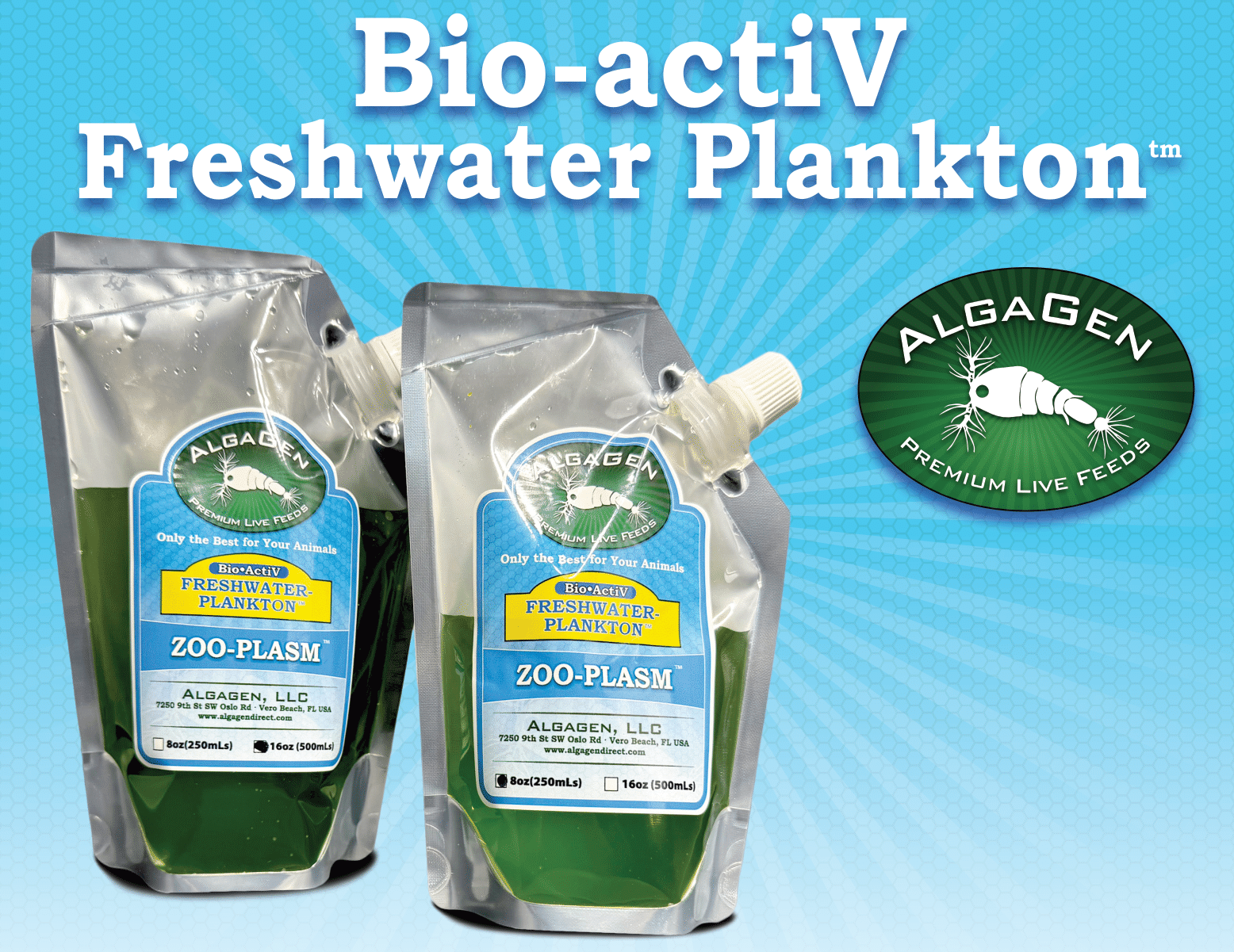
For freshwater tanks, AlgaGen offers Bio-actiV Freshwater Plankton™. It's great for keeping your freshwater fish healthy and your tank ecosystem balanced. This product is particularly useful for aquarists keeping species that naturally feed on small planktonic organisms.
7. Phytoplankton: The Green Foundation
Phytoplankton are tiny plants that float in water. They're like the grass of the sea. These microscopic plants are super important because they're food for many types of zooplankton.
Imagine phytoplankton as underwater farms. They use sunlight to grow, just like plants on land. Then, they become food for small animals, which become food for fish. It's the start of the ocean's food chain! Phytoplankton also produce oxygen and help remove carbon dioxide from the water, contributing to overall aquarium health.
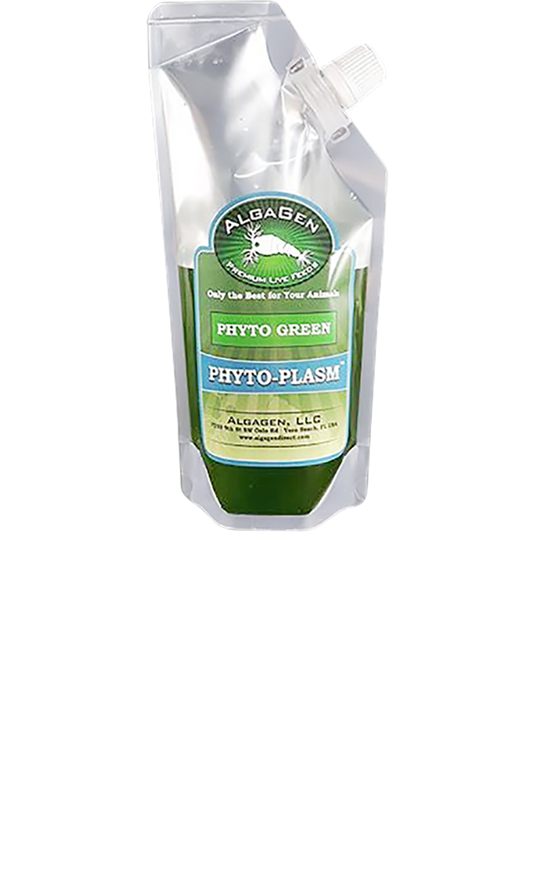
AlgaGen's Phyto-Plasm™ Collection offers different types of phytoplankton. They're great for feeding zooplankton or for directly feeding some types of fish and corals. This collection is particularly valuable for reef tank enthusiasts looking to maintain a thriving ecosystem.
8. Zooxanthellae: Coral's Best Friends
Zooxanthellae are special algae that live inside corals. They're like tiny roommates that help corals get food. These algae are super important for keeping coral reefs healthy.
Think of zooxanthellae as solar panels for corals. They use sunlight to make food, which they share with the coral. In return, the coral gives them a safe place to live. It's a win-win situation! Zooxanthellae also contribute to the vibrant colors of many coral species, making them essential for maintaining the aesthetic appeal of reef tanks.

AlgaGen offers PhycoPure™ Zooxanthellae for coral enthusiasts. It's great for keeping your corals colorful and healthy. This product can be particularly beneficial for stressed corals or those recovering from bleaching events.
9. Brine Shrimp: The Classic Fish Food
Brine shrimp, also known as Artemia, are like the chicken nuggets of the fish world. Almost all fish love to eat them. They're easy to grow and full of good nutrients for fish.
Imagine if you could grow fish food in your kitchen. That's kind of what brine shrimp are like. Fish farmers and hobbyists can easily hatch brine shrimp eggs to feed their fish. Brine shrimp are particularly high in protein and essential fatty acids, making them an excellent food source for growing fish.
While AlgaGen doesn't specifically offer brine shrimp, they do have other great zooplankton options in their Zoo-Plasm™ collection that can be just as nutritious for your fish. These alternatives can provide similar nutritional benefits to brine shrimp while offering variety to your fish's diet.
10. Amphipods: The Scavengers
Amphipods are like the garbage disposals of the sea. These little crustaceans eat leftover food and dead plants. By doing this, they help keep the water clean and provide food for fish.
Think of amphipods as nature's cleaning crew. They scuttle around the bottom of the ocean or your tank, eating stuff that might otherwise rot and pollute the water. Many fish love to snack on them too! Amphipods also help aerate the substrate as they move through it, promoting a healthier tank environment.
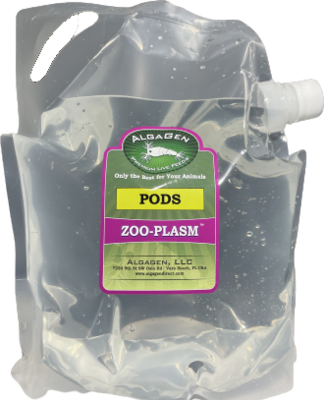
While AlgaGen doesn't specifically offer amphipods, their Zoo-Plasm™ collection includes many other types of zooplankton that can help keep your tank clean and your fish well-fed. These alternatives can provide similar benefits to amphipods in terms of tank maintenance and fish nutrition.
Conclusion: The Power of Zooplankton Diversity
Using different types of zooplankton is like giving your fish a balanced diet. Each kind of zooplankton brings something special to the table. Some clean the tank, others are packed with nutrients, and some help keep the whole ecosystem healthy.
By using a mix of these zooplankton, you can create a mini-ocean in your tank. Your fish will be healthier, your corals will be happier, and your tank will look amazing. Remember, a diverse diet leads to diverse, colorful, and active fish.
AlgaGen offers many of these zooplankton types, making it easy to give your marine life the best nutrition. Check out their products and watch your underwater world thrive!
Tank Cleaning
Some zooplankton species help keep the aquarium clean
Fish Health
Diverse zooplankton diet leads to healthier, more active fish
Coral Support
Certain zooplankton types contribute to
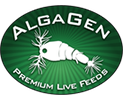
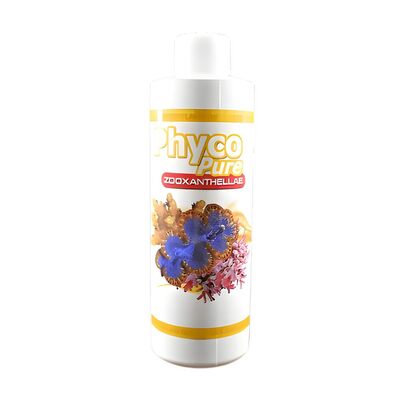
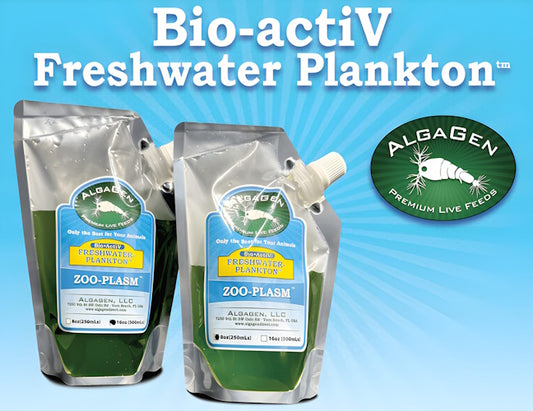
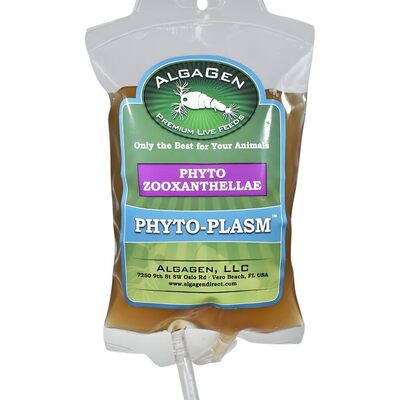
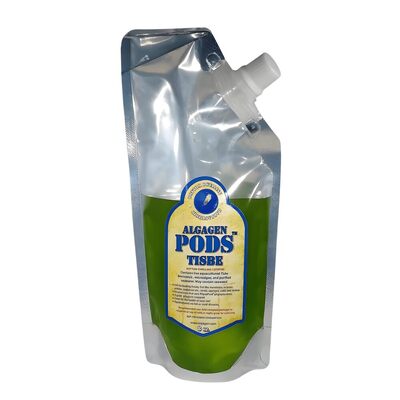
Recent post